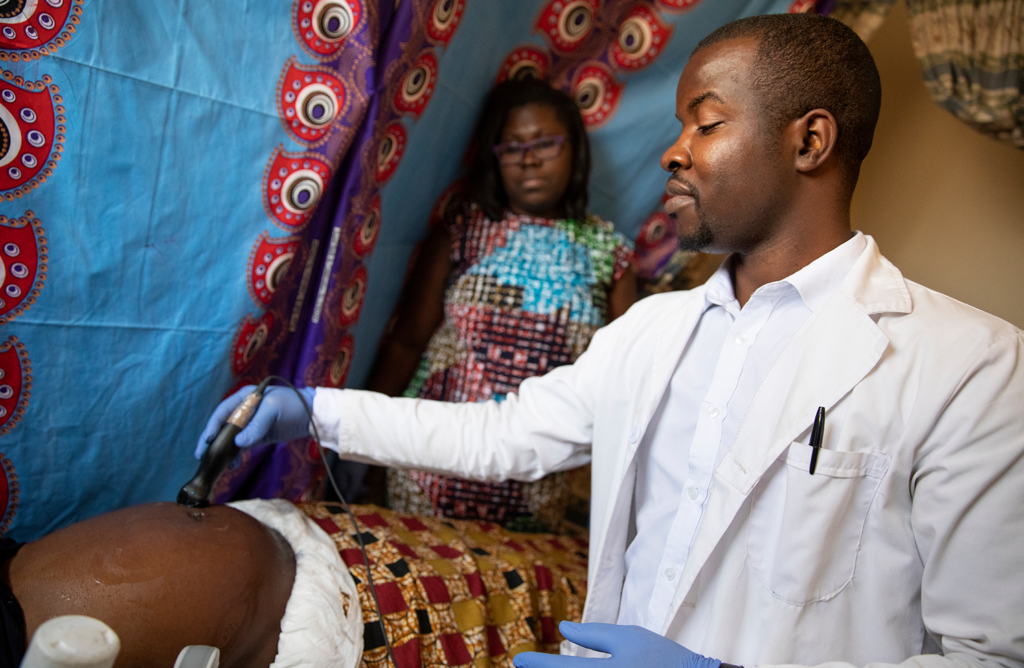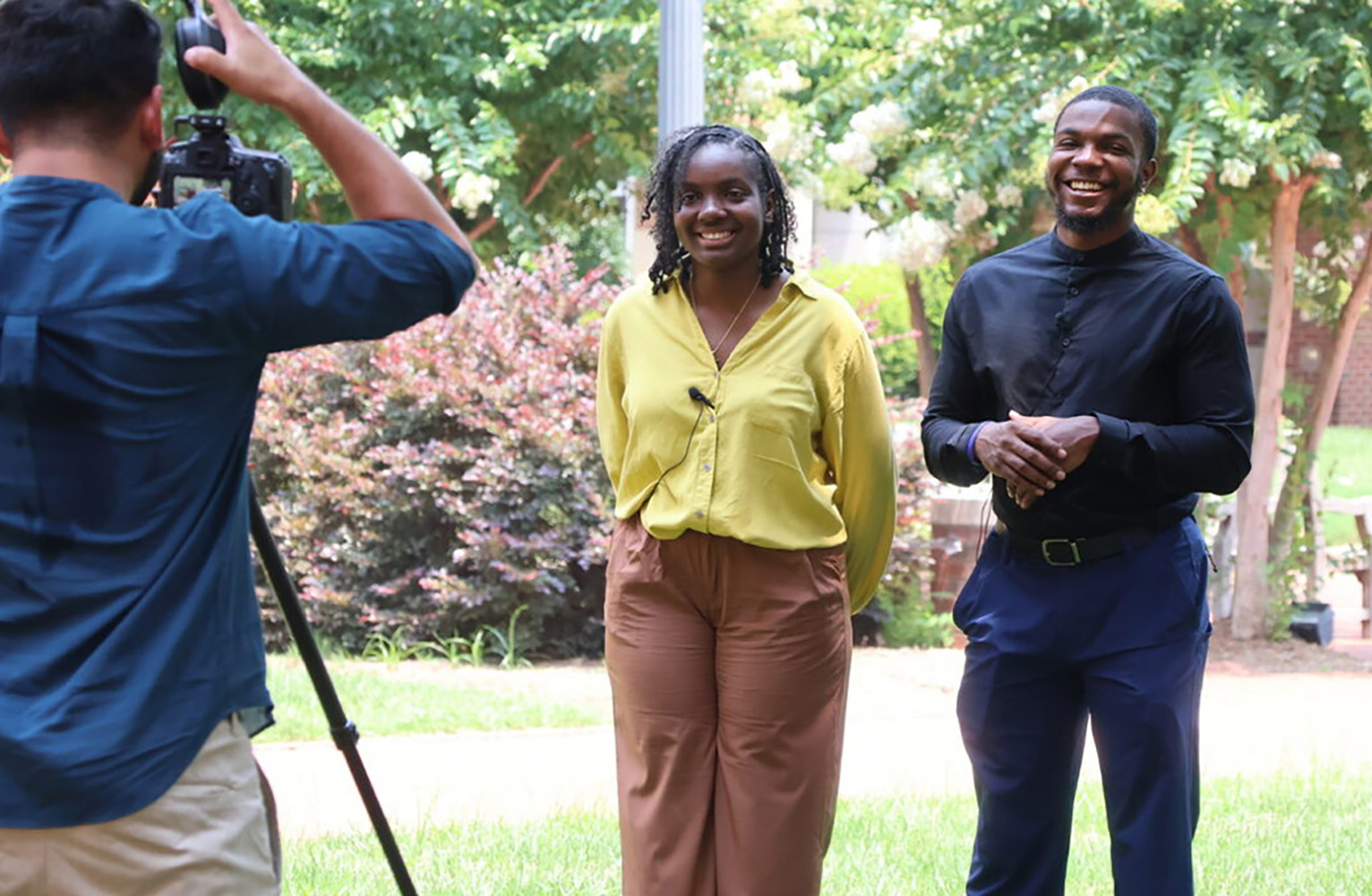 Establishing accurate gestational age with ultrasound early in pregnancy is essential to delivering high-quality care. Yet, the high cost for equipment and the need for trained sonographers limits its use in low-resource settings.
Establishing accurate gestational age with ultrasound early in pregnancy is essential to delivering high-quality care. Yet, the high cost for equipment and the need for trained sonographers limits its use in low-resource settings.
UNC investigators from the Institute for Global Health & Infectious Diseases, UNC School of Medicine and UNC Gillings School of Global Public Health developed a deep-learning artificial intelligence model that can accurately estimate gestational age using a point-of-care ultrasound device.
Funded by the Bill & Melinda Gates Foundation, the research is part of the Fetal Age Machine Learning Initiative (FAMLI), an ongoing project that is developing technologies to expand obstetrical ultrasound access to low-income settings where cost and logistics have traditionally prevented its use.
The study, conducted from September 2018 through June 2021, recruited 4,695 pregnant volunteers in North Carolina and Zambia. The volunteers received blind ultrasound sweeps of the pregnant abdomen alongside standard fetal measurements, collected on both the commercial ultrasound machine and a low-cost, battery-powered device (Butterfly iQ). Researchers trained a neural network to estimate gestational age from the sweeps.
In each of three test data sets, the AI model performed at least as well as a trained sonographer using a standard cart-based machine.
“I am particularly excited about the impact of this work on gestational age prediction,” said Kosorok, the W.R. Kenan, Jr. Distinguished Professor of Biostatistics in UNC Gillings School of Public Health. “Because the needed hardware and training for implementing this prediction tool can be easily deployed in low-resourced settings, this has the potential to make a significantly positive impact on maternal and child health globally.”
Read the complete Carolina Story
Related Stories

 Establishing accurate gestational age with ultrasound early in pregnancy is essential to delivering high-quality care. Yet, the high cost for equipment and the need for trained sonographers limits its use in low-resource settings.
Establishing accurate gestational age with ultrasound early in pregnancy is essential to delivering high-quality care. Yet, the high cost for equipment and the need for trained sonographers limits its use in low-resource settings.

